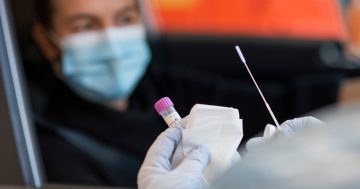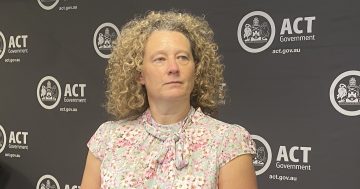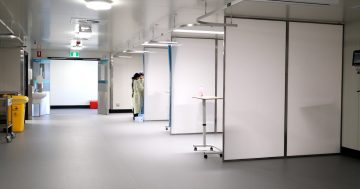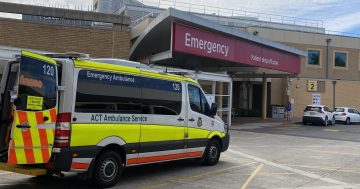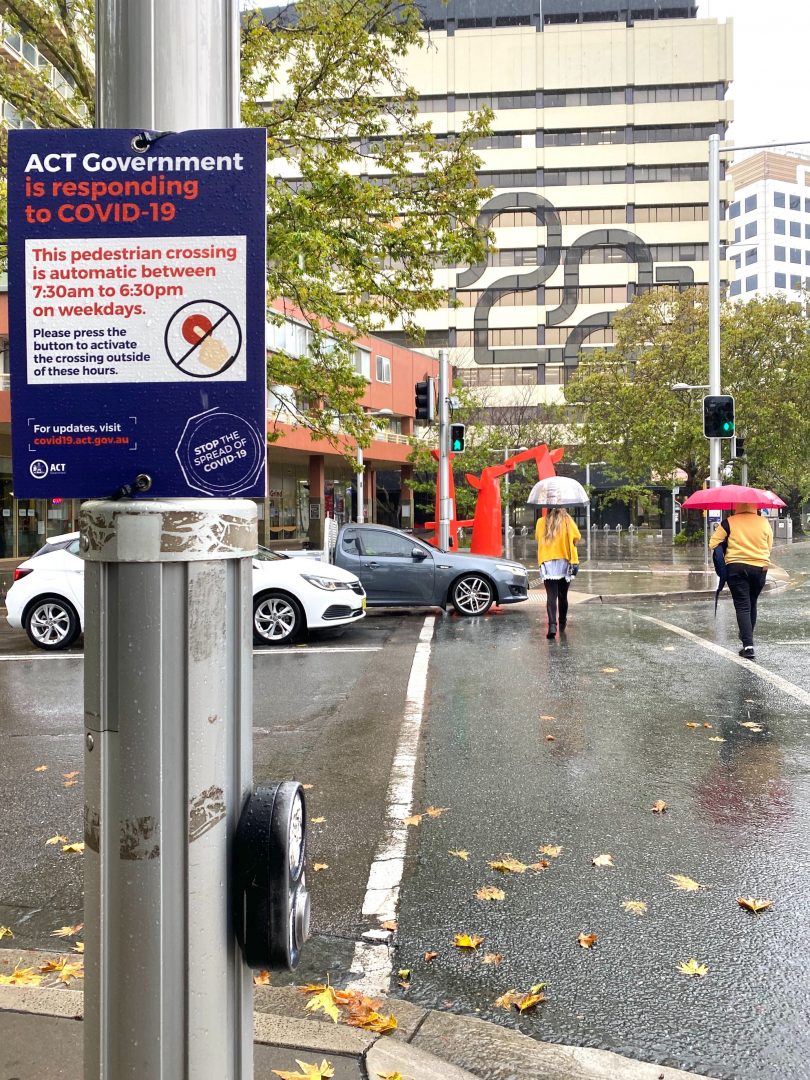
COVID-19 signs in Canberra City on Friday, 1 May. Photo: Michelle Kroll, Region Media.
ACT Health has confirmed one new case of COVID-19 has been recorded in the Territory past 24 hours. The last confirmed case was announced by ACT Health on 29 April.
The individual is a female in her 20s who acquired the infection while overseas some time ago.
ACT Deputy Chief Health Officer Dr Vanessa Johnston said the woman was symptomatic while overseas and then spent 14 days in self-quarantine after returning home.
“They were not tested during their self-quarantine period because their symptoms had resolved prior to their return to Australia,” Dr Johnston said.
“Recently, this individual presented for testing after developing new cold-like symptoms and returned a low positive result. Further testing has also confirmed the presence of a common respiratory virus.
“Our investigation identified that this person has not been infectious since before finishing their self-quarantine.”
Dr Johnston said ACT Health has identified a small number of close contacts as at risk as a highly precautionary measure.
“She did everything she was supposed to do when she returned to Australia,” Dr Johnston said.
“We are confident there has been no risk to the broader ACT community.”
Despite returning to Australia in March, Dr Johnston said the new case is still be classified as ‘active’ as the woman was having further tests to determine how she remained asymptomatic after finishing the self-quarantine period.
“It is possible in some situations for a positive result to be recorded even in recovered patients some time after their initial infection,” she said.
“It is likely that this represents the shedding of dead viral fragments and this means the person is not considered infectious.
“We’ve also taken a blood sample from her to see if she has got immunity to the virus from her previous infection.”
Dr Johnston admitted this new case confused the definition of whether someone had recovered from the virus.
“While we’re still undertaking testing on individuals, they are still recorded as active, although she’s no longer got any symptoms of her infection. We don’t clear people entirely and put them into the recovered category until we’re very happy to release them from isolation and we’ve got all testing results back.”
A person is then considered ‘recovered’ once they have gone 10 days from the onset of symptoms and at least three days with no symptoms.
Dr Johnston reminded Canberrans to continue practising physical distancing and excellent hygiene and to get tested if they have any symptoms.
“While we are in a very good position here in the ACT, this is a good reminder that we will continue to see more cases,” Dr Johnston said.
“That’s why it’s important that we all act cautiously even as restrictions start to be eased. That means keeping a good distance between yourselves and others while you are out and about and also making sure you wash your hands regularly.
“I also want to encourage anybody with symptoms to go and get tested. The more people that get tested the better chance we have of identifying any undetected cases that might be in our community.”
There have now been 9521 negative tests in the ACT, with the latest positive result bringing the ACT’s total to 107.
A total of 103 people have recovered from COVID-19 and have been released from self-isolation.
There are no COVID-19 patients in Canberra hospitals.
For further information about the health and economic response to COVID-19 in the ACT, visit the dedicated COVID- 19 website. The ACT Government has also established a helpline to assist Canberrans through the challenges of COVID-19. The COVID-19 Helpline is now live and will operate on 02 6207 7244 between 8:00 am and 8:00 pm daily.












